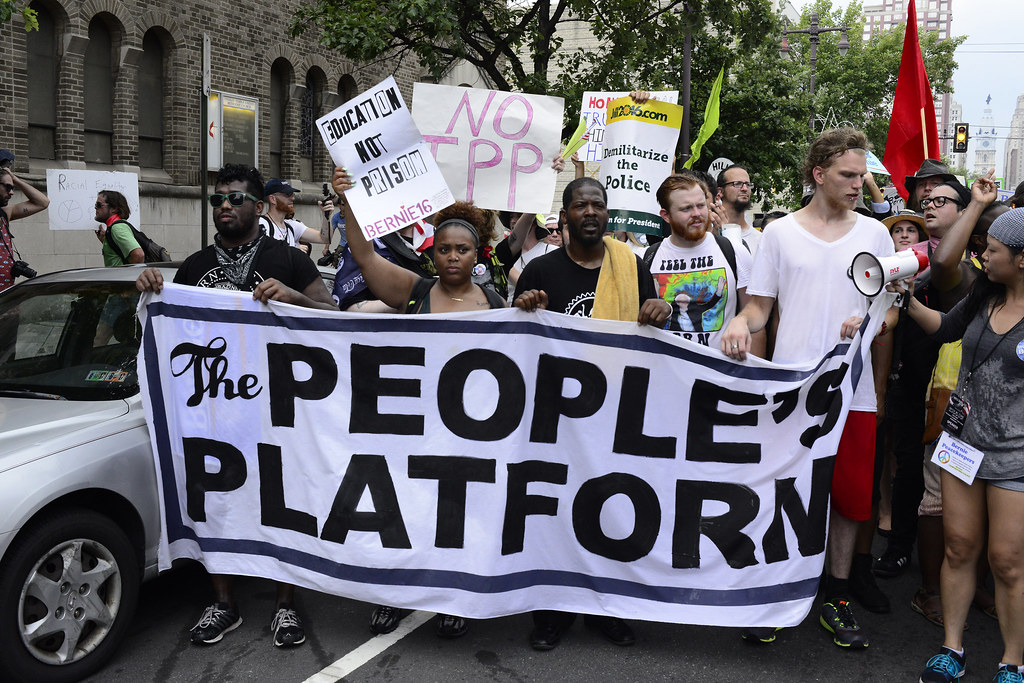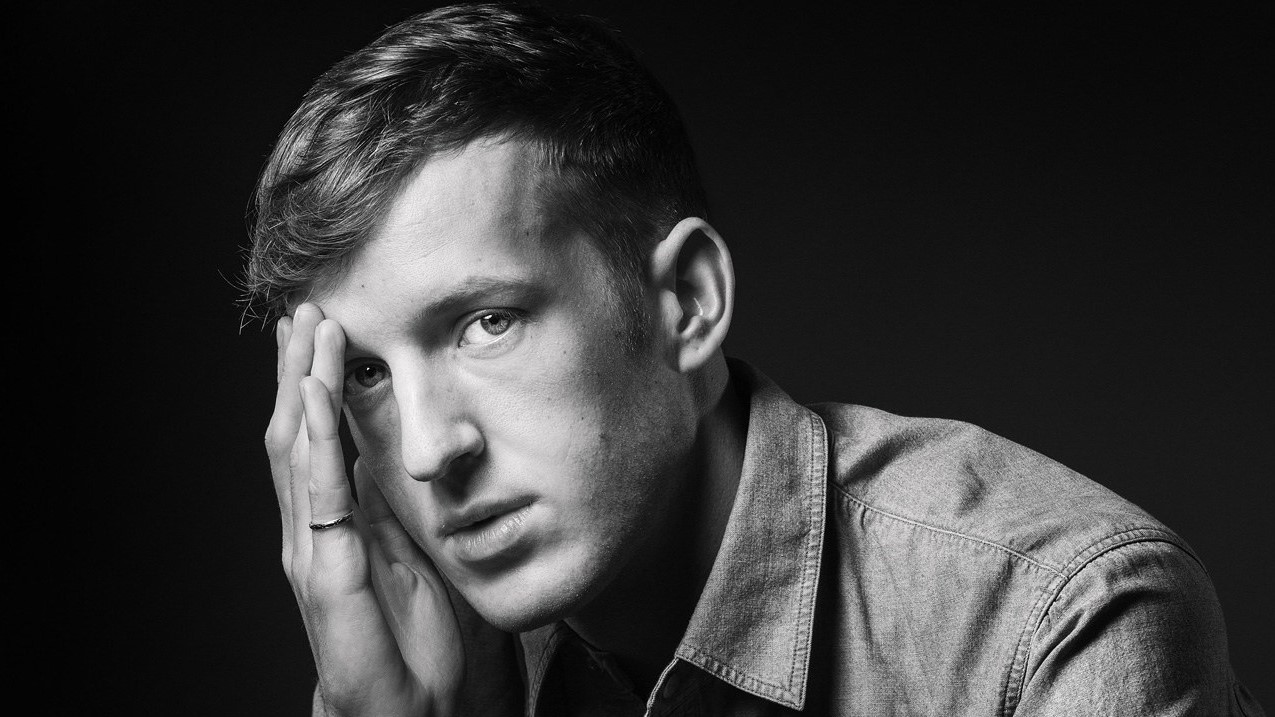Popular protest, the peaceful kind, is an important part of a healthy democracy. Protest movements have changed the lives of millions, although many started with only a handful of activists. The fall of the Berlin Wall and ultimately the Iron Curtain stands out for many in recent European history. But more recently popular protest movements have increased across Europe. At De Balie, in Amsterdam, we recently heard from the leaders of the Yellow Vests in France, the Sardines in Italy, Extinction Rebellion in the UK and the Million Moments in the Czech Republic. We also heard from Demosisto in Hong Kong who are fighting for democracy in the face of strong opposition from mainland China. Do movements such as these embody the positive and very necessary side of populism and identity politics in a democracy?
The Hong Kong protest movement is now famous worldwide. Nowhere is the fight between democracy and autocracy more dramatically defined than on this small, beleaguered island in the South China Sea. A leaderless movement, like so many others, we heard from one of the long-time organisers, Wong Yik Mo, who shared their lessons for protest, based on hard-won experience. He speaks of the importance of working together as a group and helping one another.
In Hong Kong this has come in the form of provision of food, accommodation and medical attention to protesters. He also emphasises the importance of sticking to your goals, but still being flexible enough to adjust to changing events. ‘Be like water but do not kow tow!’ Know your enemy. Clearly the Chinese Communist Party is a formidable enemy to have, nevertheless, it’s important to know what you’re up against. Linked to this, is their decision to build an essentially leaderless movement in which ‘Nobody is the hero, but everyone is a hero’.
Fighting the ‘sad, bad populist politics’ of Italy – Mattia Santori of the Sardine movement
Other popular protest movements in Europe, have also chosen to take a decentralised approach to their organisation. Co-founder of Extinction Rebellion in the UK, Clare Farrell, explains that they view their approach as opting for lots of leaders rather than being leaderless. ‘We don’t want to become reliant on a single voice or too small a group of voices’ she explains.
Mattia Santori, co-founder of the Sardine movement in Italy explains that he and his flatmate, who started the movement together, initially agreed to take turns talking with the press. ‘It wasn’t easy ,we had to accept these roles as leaders’ and admits that he is pleased they are still friends! Santori explains that the movement grew out of a desire to fight against ‘the bad, sad politics in Italy, the populist politics’. The first protest took place in Bologne, Santori’s hometown, and the goal was to get 6000 ‘sardines’ into the town square to protest. ‘We don’t have economic power but we do have people power!’ he laughs.
Although the Sardines are fighting against populism in Italy, comments such as these merely highlight the populist nature of their own endeavour. Similarly, the Million Moments for Democracy movement co-founded by Benjamin Roll in Prague, stemmed from an initial desire to see the resignation of a corrupt, autocratic Prime Minister. But in time, Roll admits that they came to realise their real goal was to protect and defend democracy. ‘One of the biggest problems, is that people here don’t believe in democracy’ he explains.
‘Democracy is more than just elections’ – Benjamin Roll of Million Moments
‘Democracy is more than just elections. It’s about our everyday lives, our attitudes.’ To this end, he admits that they are in contact with the opposition parties in the Czech Republic. Their role is to encourage a deeply divided political opposition to work together and cooperate so that they can offer a clear alternative to those who are currently in power. Ultimately the Million Moments movement works to stimulate an active civil society and democratically engaged citizens.
Priscillia Ludosky, who co-founded the Yellow Vest (Giles Jaunes) movement in Paris in 2018, explains that it started with a simple desire to denounce inequalities. She began a petition requesting more transparency regarding the fuel tax. ‘It was an invitation to start a public debate’. As a result, they have been accused of being anti-climate change. But Ludosky tells us that this was an attempt by the political establishment, including the French government, to discredit a movement which has grown in power and political strength.
Like the Sardines, she agrees that, ‘we don’t have a lot of financing and therefore we need to be very smart with our choice of tools.’ She also admits that she too was initially approached by every major French political party. They tried to persuade her that the Yellow Vests should be associated with their own political agenda. But all were eschewed. ‘They are like poison for me’ says Priscillia, of the political establishment.
The missing piece in European democracy?
Do these movements see common ground between them? Would they consider working together on a pan-European or possibly a global level? Benjamin Roll sees a role for the Million Moments in a wider European context, particularly in other Eastern European countries where similar fights for democracy are currently raging. Mattia Santori believes that ‘it is our responsibility to create a trigger point for Europe’. He views movements like his and others as ‘the missing piece’ in European democracy.
Clare Farrell of Extinction Rebellion says, ‘our doors are always wide open’ to work with other popular protest movements. Their goal of having a citizen’s assembly in parliament, is based on a strong belief in the need to ‘change democracy in order to fix the problems about which we are protesting’. Wong Yik Mo of Demosisto in Hong Kong sees a clear correlation between the erosion of democracy in Europe and China’s influence, particularly over countries like Hungary and Greece. In this sense he sees much common ground between their efforts in Hong Kong and popular movements in Europe.
In spite of their differing agendas, all of these popular protest movements share a common desire to harness the power of the people in order to improve democracy. From this perspective, they are populist in the best sense of the word. Their function, like that of the media, is to serve as watch dogs of the political establishment. Their refusal to be absorbed by this establishment is also the source of their power and independence.



